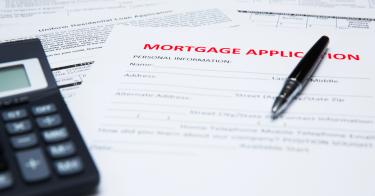If you think homeownership is unaffordable now, even with a good credit score, hang on. It’s about to get worse.
In an era of record-high home prices and rising interest rates, the Biden administration just imposed higher mortgage fees on borrowers with good credit and is reducing fees for those with bad credit. Starting May 1, responsible borrowers will be stuck paying $15,000 more on average over the life of their loan.
In January, President Joe Biden’s Federal Housing Finance Agency increased the fees charged to homebuyers with good credit and sizable down payments, while reducing fees for less creditworthy borrowers who also have little to no down payments.
This led Fannie Mae and Freddie Mac to update their loan-level price adjustments, which lenders use to determine the fees charged to borrowers. Since those fees are often incorporated into the interest rate on a mortgage, the new LLPAs will result in higher interest rates for many borrowers with good credit, and that means a larger monthly mortgage payment.
>>> How Americans Have Taken a Pay Cut Every Month Since Biden Took Office
The mortgage industry is heavily regulated. Banks must conform to lending practices set forth by institutions like Fannie Mae. Sometimes that is dictated by law. At other times it is a necessity of doing business. For example, if a bank doesn’t abide by Fannie Mae’s guidelines, then the mortgage giant won’t buy that bank’s mortgages.
That puts the bank at a severe disadvantage and greatly limits its ability to lend relative to its competitors, whose mortgages are being purchased and bundled into tradeable securities. Conforming to Fannie Mae’s lending standards allows a bank to sell many more mortgages and stay competitive.
Unfortunately, these new LLPAs are penalizing responsible behavior while potentially creating systemic risk. FHFA Director Sandra Thompson said these changes were made to “advance (the) mission of facilitating equitable and sustainable access to homeownership,” but that just isn’t the ultimate effect.
This executive overreach and social engineering by the Biden administration ignores the reality that prices convey information. They are best determined by the market, not bureaucrats.
An interest rate is the price for borrowing money, an activity that involves some risk; there is a chance that the borrower will not repay the creditor. Borrowers with high credit scores typically have a proven track record of repaying debt in a timely manner, while those with low credit scores have typically demonstrated the opposite.
Because those with high credit scores are less likely to default (not repay a debt on time), they are charged a lower interest rate. Conversely, those with low credit scores pay a higher interest rate because of their higher default risk. This helps both the lender and the debtor, since irresponsible borrowers are discouraged from taking on too much debt.
>>> Biden Takes Credit for Extinguishing an Inflationary Inferno He Started
But that integral relationship is being defenestrated by this new rule, which provides a penalty for prudence and an incentive for insolvency. For someone with very good credit and a 20% down payment on a median priced home, this penalty amounts to an extra $15,000 over a 30-year mortgage.
Meanwhile, those with below-average credit scores and no down payment on a median-priced home will save about $8,000 over a 30-year mortgage. The Biden administration is effectively encouraging riskier borrowers to take out loans—while punishing responsible borrowers.
This is shockingly like what led to the subprime crisis, which preceded the global financial crisis. In the name of encouraging minority homeownership, lending standards were relaxed and relied less on a borrower’s ability to pay on time.
Today, Biden’s FHFA is influencing mortgage lending standards to once again base lending on factors other than an individual’s ability to repay debt in a timely manner. Instead, the government is divorcing a borrower’s interest rate from the borrower’s default risk in the name of social justice.
This dovetails well with the Biden administration’s broader war on merit that seeks to achieve outcomes based on immutable characteristics (like skin color) and not personal accomplishment. The unconstitutionality of this rule will hopefully be brought before a court so that this unnecessary cost on responsible Americans can be reversed.
This piece originally appeared in The Baltimore Sun




